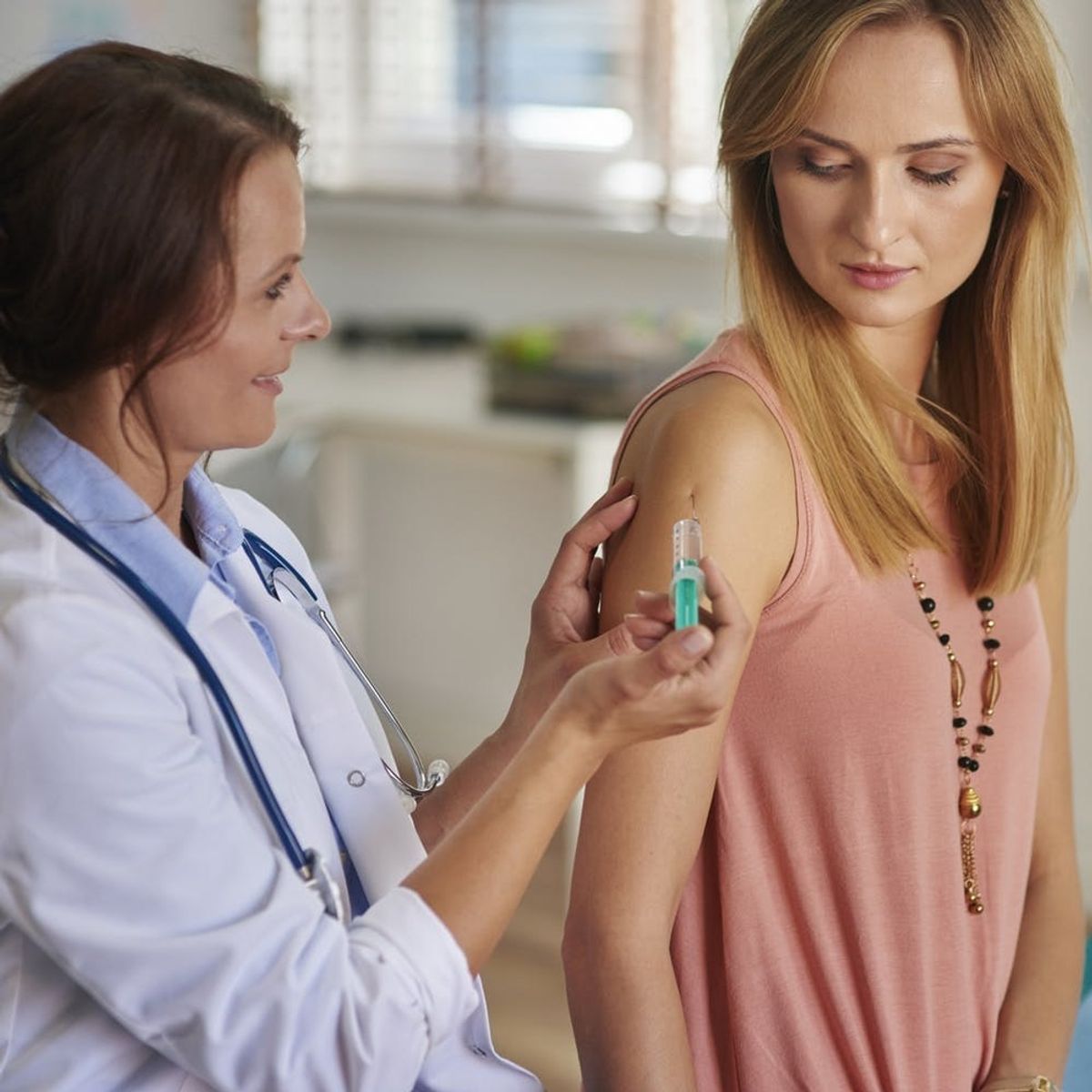HPV just may be something you still have to worry about in your 20s.
Why You Should Still Get the HPV Vaccine in Your 20s

There are a lot of things to worry about in your twenties — relationships, careers, money, roommates. But some young women now also have to worry about cancer. What?! You shouldn’t think that just because you’re young, you’re not at risk, especially when it comes to cancers associated with HPV (Human Papillomavirus). If you go to the gynecologist every year (or less, now that you can get birth control on demand), and your doctor has never brought up HPV, don’t be afraid to speak up.
Turns out that, despite increased awareness of the virus, an early July CDC report shows that US cases of HPV are actually on the rise, and the main reason is that still not enough people are getting vaccinated. In 2014, only 39.7 percent of teenage girls fully completed the full three-shot HPV vaccination series and only 21.6 percent of boys.
The CDC analyzed HPV-associated cancer cases diagnosed from 2008-2012, and found that nearly 39,000 were diagnosed every year over that period. Of those, 59 percent of cases were in women, and (perhaps surprisingly to some, as the virus is most commonly associated with cervical cancer) 41 percent were among men. The CDC estimates that 79 percent of those HPV-associated cancer cases can be attributed directly to the virus, and overall, the data represents almost a full percent increase in HPV-associated cancer incidences from the last time the CDC did a study, from 2004-2008.
And the bombshell statistic: 80 percent of the cases analyzed could have been prevented by vaccination. Eighty percent!
Early prevention with vaccination is the best chance at cutting down the instances of HPV-associated cancers. Now that there’s more awareness in the medical community, many doctors are administering it to patients (male and female) in their teen or pre-teen years. But if you missed out on that particular teenage milestone, it may not be too late. Men can receive the vaccine up to age 21, and women until age 26.
If you’ve never been vaccinated for HPV and you’re over 26, don’t panic. But do make sure you stay on top of your annual gynecological exams, including Pap smears, which are the recommended screening for cervical cancer for women in their twenties. And since HPV can be sexually transmitted (in fact, it’s the most commonly spread STD in the United States), be sure to use protection when you’re getting down in the bedroom.
What are your top health priorities in your twenties? Are you concerned about HPV? Tweet us your thoughts @BritandCo.
(Photos via Getty)


















